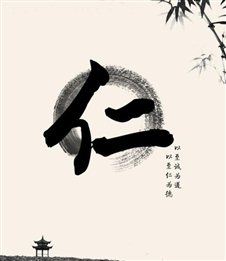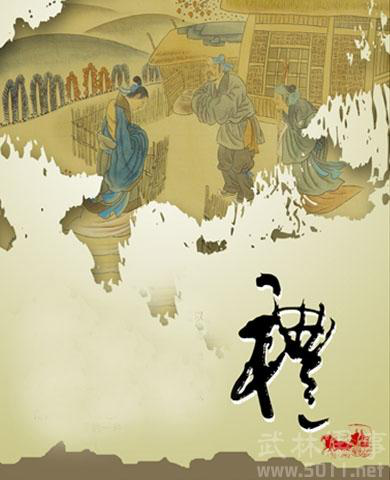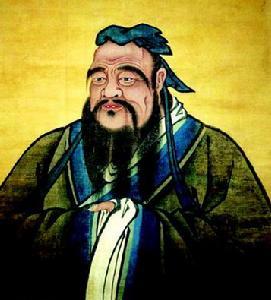Confucius was China's first educator. He taught students all his life, and put forward many important educational principles and effective teaching methods. He held that all men were educable, because by nature men were quite alike, and they were made different by learning and practice.
This was in his day an epoch-making view, because it meant that not only the nobles,but people of all other classes,were entitled to receive education. His teaching methods included the eliciting method, giving instructions according to students' peculiarities, and combining theory with reality and practice. To deepen his students, understanding, he discussed with them real people and events of earlier times and his day, expressing his own views, making analys, pointing out their strengths and weaknesses, and urging his students to weigh and decide issues. It was regrettable that the master was not free from prejudices against women and never accepted a female student.
Confucianism advocates benevolence and courtesy among people. It helped to shape the value of sacrificing one's personal interests for the goodof others and the collective among Chinese people. It was also credited with creating the social order in China's feudal times, which asked the young to respect the old and the female to obey the orders of the male. Popular remarks of Confucius include “ a benevolent person is one who cares for others”,“I would die to keep my integrity and benevolence”, and “a benevolent person helps others to achieve aims he himself also aspires to”.


Confucius is the most famous sage of China. More than any other single man, he, through his followers, produced the principle basis of the Chinese tradition of ethics and political theory that had thus deeply influenced Chinese society and culture. Over the centuries, this influence spread also to Korea, Japan and other countries. Confucianism is wholly considered more of an ettiical philosophy than a religion. However, it is debatable if the system founded by Confucius should be called a religion, it prescribes a great deal of ritual, but little of this can be interpreted as worship or meditation in a formal sense; and Confucius occasionally made statements about the existence of other-worldly beings that sound agnostic to western ears.




